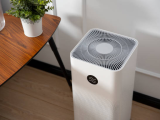Jun 14, 2007 (CIDRAP News) – A hundred leaders from the business, healthcare, faith, and civic communities met with US Department of Health and Human Services (HHS) officials yesterday to discuss how to motivate individuals and families to prepare for an influenza pandemic.
The Pandemic Influenza Leadership Forum in Washington, DC, was linked with an online effort by HHS to engage community leaders in talking about pandemic preparedness. On May 22 the agency launched a pandemic leadership blog, which continues through Jun 27, to stimulate discussions and public feedback. During the leadership forum, HHS employees "live blogged" the event, adding several detailed blog postings describing the presentations and breakout sessions.
HHS Secretary Mike Leavitt, in his address at the meeting, said the goal was to share ideas on how local leaders can promote the importance of personal preparedness, according to a transcript released by HHS.
Personal preparedness "is a message that needs to surround everyone. They need to hear it from their pastors, from their employers, from their physicians, and from everyone in a position of responsibility," Leavitt said. "And they need to keep hearing it. In fact, they need to hear it even more after the news media loses interest."
Despite uncertainty about when a pandemic will strike, Leavitt said, leaders can be sure of two things: "Everything we do before a pandemic will seem alarmist. Everything we do after a pandemic will seem inadequate."
"We need to reach out to everyone with words that inform, but not inflame. We need to encourage everyone to prepare, but not panic," Leavitt said.
At a press conference that followed the forum, Stephanie Marshall, director of pandemic communications for HHS, said the agency would launch two more personal-preparedness promotion efforts in the months ahead. Later this summer officials will release tool kits, tailored to four different sector (business, healthcare, faith, and civic), that leaders can use to teach people more about pandemic flu and what they can do to prepare.
Marshall told CIDRAP News that the forum yielded ideas that will help HHS tailor the tool kits for each sector. "We received a lot of thoughtful input yesterday," she said.
In the fall, HHS will target 5 to 10 diverse communities for more intensive communication campaigns about personal preparedness, Marshall said. "We certainly would like to include the appropriate representatives from the leadership forum and blog summit in these localized efforts," she added.
John Agwunobi, assistant secretary for health at HHS, said at the press conference that pandemic preparedness experts who share their expertise on the Internet and leaders representing other groups, such as churches, stand ready to help the government promote personal preparedness.
"They [pandemic planning leaders] need to be leveraged by the government and leaders, or at least listened to," he said. "I recognize that the federal government still has a lot to learn about the best way to engage individuals."
Greg Dworkin, MD, who took part in the leadership summit and is one of 13 experts who have led the blog discussions, told reporters he lauds the HHS for offering such an open live and online forum. The sometimes heated blog postings over the past weeks show there are many interested people who want good information from a federal source on individual and family preparedness, said Dworkin, founding editor of the FluWiki Web site and chief of pediatric pulmonology at Danbury Hospital in Danbury, Conn.
The HHS leadership forum helps validate the efforts of the many people who have already heeded pandemic warnings and started preparing their communities, their families, and themselves, he said.
According to an HHS news release yesterday, HHS officials at the meeting urged participants to communicate to their communities that it is critical for everyone to prepare for possible pandemic flu. Participants were urged to encourage people to(1) store extra food and other daily supplies to make it easier to stay home for a prolonged period of time, (2) learn and practice proper hand washing, (3) use safe cough and sneeze techniques to limit the spread of illnesses, and (4) stay home and avoid others during illness.
See also:
May 22 CIDRAP News story "HHS launches blog on pandemic preparedness"


















